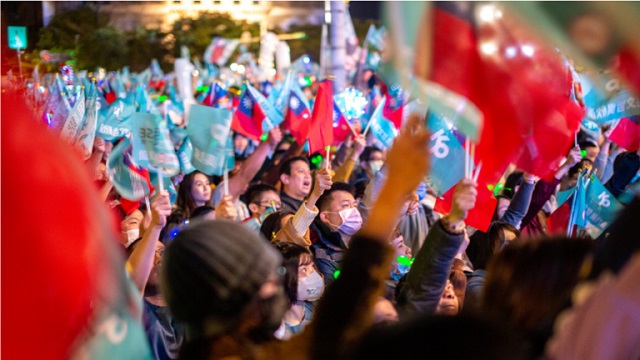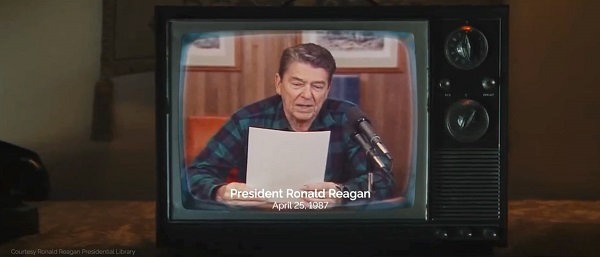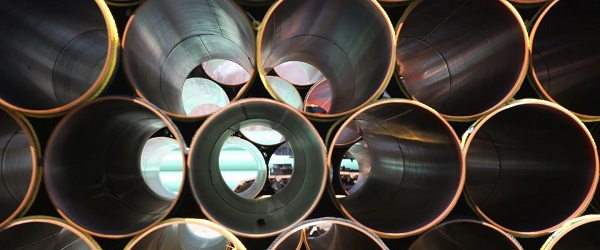International
In Taiwan’s election, voters refused to give in to Beijing’s relentless pressure

From the MacDonald Laurier Institute
By J. Michael Cole
Beijing will no doubt regard the results of Saturday’s elections as a further affront to its nationalistic pride.
Amid unprecedented attention from the international community and rising tensions in the Taiwan Strait, the people of Taiwan headed to the polls on Saturday to elect a new president and legislature. After months of intense campaigning and intimidation by China, Taiwanese voters elected to give the ruling Democratic Progressive Party (DPP) a third four-year term – the first time in the island nation’s democratic history that a party has remained in power for more than two consecutive terms.
Despite Beijing’s warning that a vote for the DPP candidate, Lai Ching-te, constituted a vote for “war,” the Taiwanese electorate chose continuity, with Mr. Lai vowing to continue the policies of President Tsai Ing-wen, who successfully navigated a difficult geopolitical environment over the past eight years. (Ms. Tsai will step down on May 20 after reaching her two-term limit.)
Wary of the Taiwan-centric DPP, Beijing has been relentless in its attempts to coerce Taiwan, both militarily and economically, and to isolate it from the international community while using various incentives to foster support for unification with the People’s Republic of China. Those efforts have been largely unsuccessful, and eight years on, Taiwan is arguably much more connected with the international community than it was under more Beijing-friendly governments.
Beijing will no doubt regard the results of Saturday’s elections as a further affront to its nationalistic pride, and we can therefore expect an intensification of its punitive measures at the economic and diplomatic level, as well as an intensification of its already highly destabilizing military activity around Taiwan. In response, the Lai administration will continue to strive to diversify its export destinations to further reduce its economic dependence in China, and, as one of the most vibrant democracies in the region, will remain an important partner to the U.S.-led community of democracies as it pushes back against resurgent authoritarianism. Under Ms. Tsai, Taiwan has played an important role as an example and promoter of liberal democracy, both within the region and abroad. Its government and vibrant civil society have expanded their footprint abroad, often helping other democracies, such as Canada, learn how to better balance their relationship with China so that trade and engagement does not come at the cost of corroded values and institutions.
While many domestic factors also weighed into who the Taiwanese decided to vote for in Saturday’s election, in which the DPP also lost its majority of seats in the Legislative Yuan, their vote for Mr. Lai signalled a desire for Taiwan to continue to play a larger role on the international stage. While potentially reducing tensions in the Taiwan Strait for some time, a victory by his two opponents would nevertheless have come at the cost of retrenchment on the international stage and greater focus on Taiwan’s relations with – and concessions to – China.
Still, despite ongoing efforts to modernize its military and develop a defence posture that is better suited to meet the challenge posed by the Chinese military, Taiwan’s ability to deter an invasion by the much more powerful People’s Liberation Army remains contingent on a U.S. commitment to its defence, as well as pressure from other countries making it clear to Beijing that any attempt to annex Taiwan by force and against the wishes of its 23.5 million people would come at an unacceptable cost.
Potential distractions caused by the ongoing war in Ukraine, the risks of a regional conflagration in the Middle East, an unpredictable North Korea and political instability in the U.S. could undermine American efforts to assist Taiwan and therefore embolden Beijing. The DPP’s loss of its majority in parliament could also complicate the new administration’s ability to secure the budgets it needs to fund defence modernization and foreign policy initiatives, which Beijing will no doubt seek to exploit.
There is every reason to believe that a Lai administration will build upon and continue to expand the course set by his predecessor. In the last eight years, Taiwan shone on the international stage, and consolidated its place as both a bastion of liberal-democratic values and an economic powerhouse whose technological prowess in fields such as semiconductors have positioned the country as an indispensable component of the global supply chain. And yet, this success story continues to be threatened by an authoritarian neighbour that rejects the reality that, whoever they vote for, the people of Taiwan categorically refuse to be ruled by Beijing. They cherish the freedom, democracy and way of life they have built over decades of arduous work. And they want their rightful place on the international stage.
J. Michael Cole is a Taipei-based senior fellow with the Macdonald-Laurier Institute in Ottawa and a senior adviser on countering foreign authoritarian influence with the International Republican Institute. He is also a former analyst with the Canadian Security Intelligence Service.
International
Strongest hurricane in 174 years makes landfall in Jamaica

Hurricane Melissa slammed into Jamaica on Tuesday morning as a ferocious Category 5 storm, becoming the most powerful system ever to strike the island in 174 years of recordkeeping. The eye of the hurricane made landfall near St. Elizabeth Parish on the southern coast, bringing catastrophic winds, torrential rain, and life-threatening storm surges before beginning its projected path across the island toward St. Ann Parish in the north.
The storm had already proven deadly across the Caribbean, blamed for at least seven deaths—three in Jamaica, three in Haiti, and one in the Dominican Republic—while another person remains missing. Even before landfall, landslides, uprooted trees, and widespread blackouts had been reported, with emergency officials warning that the full scope of destruction may take days to assess.
Witness the raw power of nature as a U.S. Air Force pilot navigates through the eye wall of Hurricane Melissa, a Category 5 storm with 185 mph winds sweeping across Jamaica, Haiti, and the Dominican Republic. The accompanying image captures the storm's mesmerizing eye, where life… pic.twitter.com/JtKMOyJ4ku
— SanaviNet (@Sanavi1009) October 28, 2025
According to the Associated Press, Prime Minister Andrew Holness said the government had done all it could to prepare but admitted the storm’s intensity would test Jamaica’s limits. “There is no infrastructure in the region that can withstand a Category 5,” Holness said. “The question now is the speed of recovery. That’s the challenge.”
Forecasters warned of storm surges up to 13 feet along Jamaica’s southern coast, threatening homes, hospitals, and infrastructure. Health Minister Christopher Tufton said some patients were moved to upper floors as a precaution. “We hope that will suffice for any surge that will take place,” Tufton told reporters.
🚨 BREAKING: HOSPITALS DESTROYED IN JAMAICA 🚨
Medical facilities in Black River, Jamaica have reportedly been destroyed, according to a Jamaican Senator speaking to NBC.
Amid Hurricane Melissa’s catastrophic landfall, emergency services are overwhelmed, and access to care is… pic.twitter.com/FwJsmfMvqr— Dj Steven King (@djstevenking1) October 28, 2025
Matthew Samuda, Jamaica’s Minister of Water, Environment, and Climate Change, called the situation “frightening,” noting that roughly 70 percent of the country’s population lives within three miles of the sea. Low-lying communities such as Kingston, Old Harbour Bay, Rocky Point, and St. Elizabeth were expected to bear the brunt of the flooding.
“We hope we have done enough in terms of preparation,” Samuda said in an interview with the BBC, urging residents to seek shelter and pleading with Jamaicans abroad to call loved ones “before it’s too late.” Still, officials acknowledged that many have refused to leave their homes, choosing to guard their property instead.
As Melissa churns across the island, authorities warn that the coming hours will be critical. The storm’s powerful winds and deluge threaten to cut off entire communities, with the recovery effort expected to be long and grueling once skies finally clear.
Business
Canada has given $109 million to Communist China for ‘sustainable development’ since 2015

From LifeSiteNews
A briefing note showed Canadian aid has gone to ‘key foreign policy priorities in China, including human rights, gender equality, sustainable development, and climate change.’
A federal briefing note disclosed that well over $100 million has been provided to the Communist Chinese government in so-called “foreign aid” to promote “sustainable development” that includes woke ideology such as gender equality.
As reported by Blacklock’s Reporter, a recent briefing note titled Assistance to China from May for the Minister of International Development showed $109 million has gone to “key foreign policy priorities in China, including human rights, gender equality, sustainable development, and climate change” since 2015 and $645 million since 2003.
The briefing note asked directly if funding was “going to the Government of China.”
In reply, the briefing note stated, “Canada has not provided direct bilateral assistance to Chinese state authorities since 2013, though it continues to provide small amounts of funding to international partners and non-state partners on the ground.”
Former Prime Minister Justin Trudeau came to power in 2015 and increased relations with the Communist Chinese regime. This trend under the Liberal Party government has continued with Prime Minister Mark Carney.
During a 2025 federal election campaign debate, Conservative Party leader Pierre Poilievre called out Carney for his ties to Communist China.
Conservative MP Andrew Scheer has consistently called out any money at all going to China, saying, “I don’t believe Canadian taxpayers should be sending any money to China.”
“We’re talking about a Communist dictatorial government that abuses human rights, quashes freedoms, violates rights of its citizens, and has a very aggressive foreign policy throughout the region,” he noted.
Scheer added that he has been calling on the Carney Liberals to “stand up for themselves, stand up for Canadians, stop being bullied and pushed around on the world stage, especially by China.”
Most of the money in foreign aid was spent through globalist-backed agencies such as the World Bank and the United Nations Development Program. Some 39 percent of the money was said to have gone straight to Chinese recipients, but no projects were itemized.
Other countries have received millions of dollars in foreign aid, with $2.1 billion going to Ukraine, $195 million to Ethiopia, $172 million to Haiti, and $151 million to the West Bank and Gaza last year.
Foreign aid to all nations totaled $12.3 billion.
LifeSiteNews recently reported that the Canadian Liberal government gave millions in aid to Chinese universities.
China has been accused of direct election meddling in Canada, as reported by LifeSiteNews.
LifeSiteNews also reported that a new exposé by investigative journalist Sam Cooper has claimed there is compelling evidence that Carney and Trudeau are/were strongly influenced by an “elite network” of foreign actors, including those with ties to China and the World Economic Forum.
-

 Alberta1 day ago
Alberta1 day agoPremier Smith sending teachers back to school and setting up classroom complexity task force
-

 Business2 days ago
Business2 days agoThe painful return of food inflation exposes Canada’s trade failures
-

 Alberta2 days ago
Alberta2 days agoCoutts border officers seize 77 KG of cocaine in commercial truck entering Canada – Street value of $7 Million
-

 International18 hours ago
International18 hours agoBiden’s Autopen Orders declared “null and void”
-

 Business21 hours ago
Business21 hours agoTrans Mountain executive says it’s time to fix the system, expand access, and think like a nation builder
-

 National2 days ago
National2 days agoElection Officials Warn MPs: Canada’s Ballot System Is Being Exploited
-

 Business2 days ago
Business2 days agoOttawa Bought Jobs That Disappeared: Paying for Trudeau’s EV Gamble
-

 Alberta1 day ago
Alberta1 day agoThousands of Albertans march to demand independence from Canada




